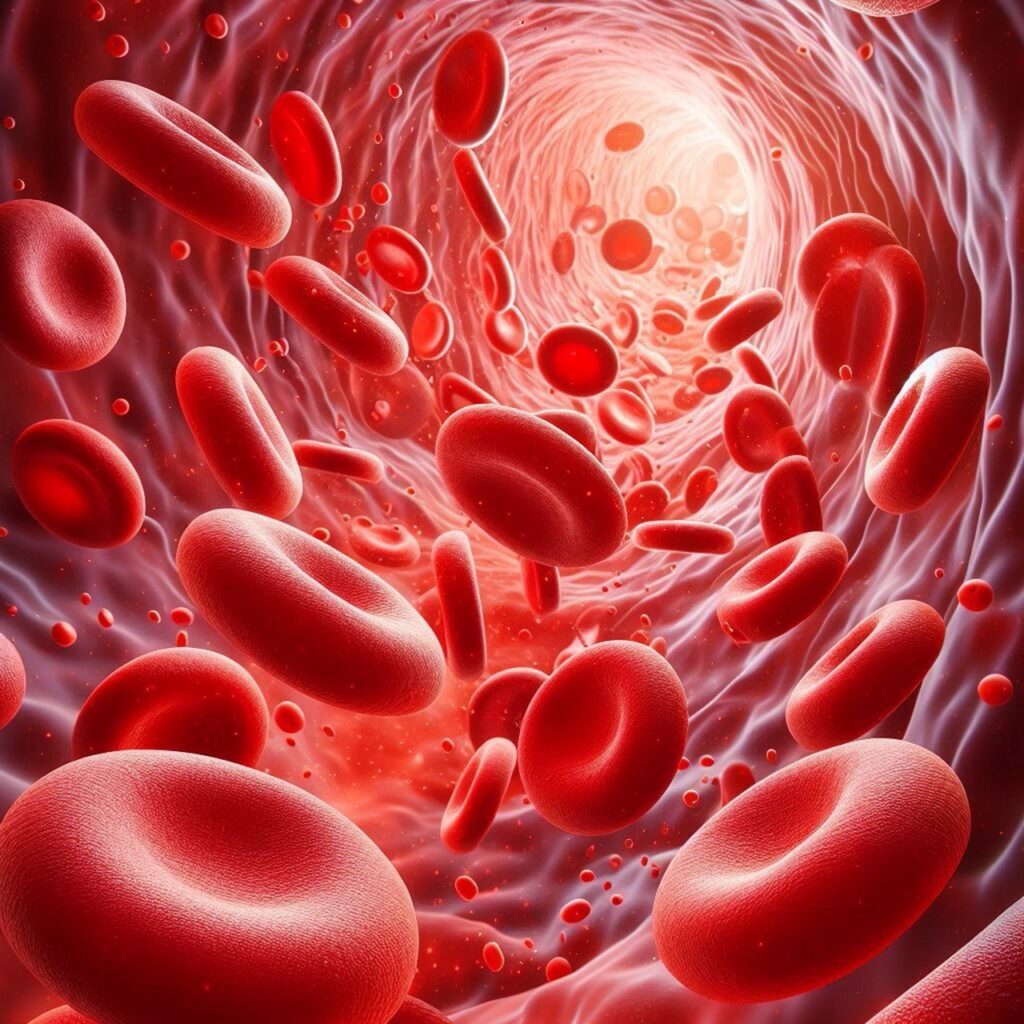
Anemia
Anemia is a condition characterized by a decrease in the number of red blood cells (RBCs) or the amount of hemoglobin in the blood, which results in reduced oxygen transport to the body’s tissues. Hemoglobin is the protein in RBCs responsible for carrying oxygen. When levels of hemoglobin are low, it leads to the symptoms associated with anemia. These symptoms can include fatigue, weakness, shortness of breath, dizziness, and pale or yellowish skin.
Why anemia occurs can vary, but it generally arises from one or more of the following factors: blood loss, decreased red blood cell production, or increased red blood cell destruction. Blood loss can occur due to conditions like heavy menstrual periods, ulcers, or injuries. Reduced production of red blood cells may be caused by nutritional deficiencies, bone marrow problems, or chronic diseases. Increased destruction, on the other hand, might be seen in conditions like hemolytic anemia or sickle cell anemia.
Sickle cell anemia is a specific type of inherited anemia where the red blood cells are abnormally shaped, leading to their premature destruction and various complications, including pain crises and organ damage.
There are several types of anemia, including iron deficiency anemia, vitamin B12 deficiency anemia, and aplastic anemia, among others. Anemia with low platelets can occur in conditions like aplastic anemia, where the bone marrow fails to produce enough blood cells, or in diseases like immune thrombocytopenic purpura (ITP).
The causes of anemia include a variety of factors. Nutritional deficiencies (like iron, vitamin B12, and folate deficiencies), chronic diseases (such as kidney disease or cancer), and genetic disorders (like thalassemia) are common causes. In some cases, anemia can be linked to jaundice, especially in hemolytic anemia, where the rapid destruction of RBCs leads to a buildup of bilirubin, causing yellowing of the skin and eyes.
Anemia during pregnancy is particularly concerning as it can affect both the mother and the baby, leading to complications like preterm birth and low birth weight. A blood test in anemia is essential for diagnosis, often revealing low hemoglobin levels, and may also include a complete blood count (CBC) to assess the number of red blood cells, white blood cells, and platelets.
Diet plays a crucial role in managing anemia. A diet in anemia should be rich in iron, vitamin B12, and folate to support red blood cell production. The WHO anemia classification categorizes anemia into mild, moderate, and severe based on hemoglobin levels, guiding the appropriate treatment approach.
